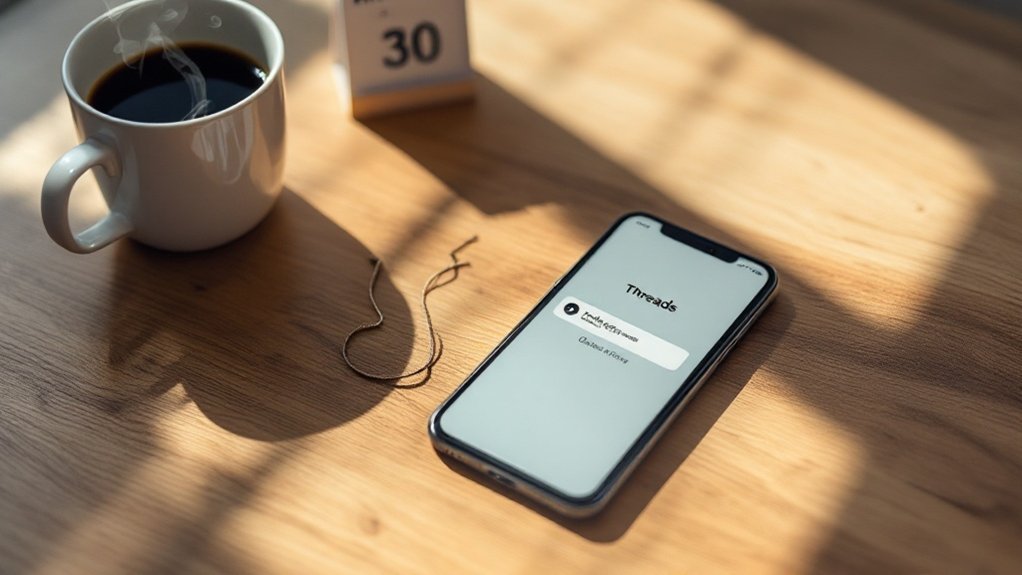Several apps face potential bans by 2025, most importantly TikTok, which could be prohibited in the U.S. by April 5 unless ByteDance sells its operations. WeChat and CapCut are also on the chopping block. The crackdown stems from national security concerns and foreign ownership issues. TikTok's already banned in multiple countries, including India. Public opinion? Totally split. Better download those dance tutorials while you can. The era of unrestricted digital access is ending, fast.

As digital regulation tightens its grip worldwide, several popular apps are staring down the barrel of potential bans in 2025. TikTok leads the pack, facing a ticking clock in the U.S. where ByteDance must sell its operations by April 5, 2025, or kiss the American market goodbye. That's 170 million users potentially left doing that awkward dance with no music.
The digital guillotine falls in 2025, with TikTok first in line for America's chopping block.
WeChat isn't faring much better. Previously targeted by executive orders, it remains in the crosshairs of U.S. regulators. And it's not alone. CapCut, another ByteDance creation, will likely get swept up in the same security dragnet. While some users turn to GPT-4 alternatives through platforms like Bing AI, social media restrictions continue to expand.
Funny how these apps collect our data for years, then act shocked when governments notice. Just as AI trainers work to ensure system accuracy and ethics, these apps seem to ignore basic data privacy standards.
The geographical spread of these restrictions is getting wider. TikTok's already been shown the door in India, Afghanistan, and Nepal. Telegram got the boot in Somalia—extremist content will do that.
Meanwhile, lawmakers and government staff in the U.S., UK, and Australia can't even have TikTok on their work phones. Security risks? Yeah, that's putting it mildly.
What's driving this global crackdown? National security concerns top the list. Public opinion on the matter is surprisingly divided, with only 32% favoring a ban while 28% oppose it outright. The public isn't exactly thrilled about foreign governments potentially accessing their personal data.
Trust is hard to come by when your app's parent company has ties to authoritarian regimes. Who knew dancing teens could pose such a threat to military intelligence?
The U.S. Restrict Act is giving authorities new powers to regulate tech entities controlled by foreign adversaries. In Australia, the Social Media Minimum Age Bill might spark copycat legislation elsewhere.
The European Union isn't sitting idle either, ramping up oversight on data handling practices.
Even if your favorite apps survive the ban hammer, they won't escape unscathed. Facebook, Instagram, and YouTube are all caught in the crossfire of broader social media regulation. Taiwan has been particularly strict, implementing a ban on public devices that extends beyond TikTok to include Chinese apps like Douyin and Xiaohongshu.
The days of the digital Wild West are numbered. Better download those dance tutorials while you still can.
Frequently Asked Questions
How Are App Ban Decisions Legally Challenged by Developers?
Developers fight app bans through constitutional challenges.
First Amendment arguments are popular – free speech matters, apparently. They claim insufficient evidence for national security threats and argue they're unfairly targeted compared to similar platforms.
The legal process involves emergency hearings, appeals, and sometimes temporary stays while courts review cases. It's a legal obstacle course with high stakes.
Companies pour millions into these battles. Not surprising, given what's on the line.
Can VPNS Help Access Banned Apps in My Country?
VPNs can indeed bypass geo-restrictions for banned apps. They mask IP addresses, making it appear users are connecting from allowed regions.
But effectiveness varies wildly. Some governments employ sophisticated detection methods that can identify and block VPN traffic.
And there's the legal angle—using VPNs is illegal in countries like China and Iran. Even where legal, accessing banned content may violate terms of service.
Detection could result in account suspension or, in stricter regimes, potential fines.
Do App Bans Affect Existing Downloads on My Device?
App bans don't instantly wipe existing downloads from devices. The app stays put—it's already there.
But here's the kicker: while you can still open it, functionality takes a serious hit. No updates. No server connections. No syncing new data.
Apps with offline features? They'll work… kinda.
But anything needing internet connectivity? Dead in the water. Your precious local data remains accessible, though. Cold comfort when half the app's features suddenly stop working.
What Alternatives Exist for Functionality Provided by Banned Apps?
When apps get banned, plenty of alternatives fill the void.
TikTok users can jump to YouTube Shorts or Instagram Reels.
Privacy concerned? Signal and Telegram got you covered.
Shoppers losing Shein can hit up Amazon or ASOS.
CapCut editors have InShot and Adobe Premiere Rush.
Even productivity tools have replacements—Adobe Scan instead of CamScanner.
Each banned app has multiple alternatives.
Some are actually better than the original.
That's just how tech works.
How Do International App Bans Impact Global Tech Companies?
International app bans hit global tech companies hard. Revenue streams dry up overnight in banned markets. Companies scramble to adapt their business models. Local competitors thrive, obviously.
The ripple effects are massive. Supply chains get disrupted. Developer teams face layoffs. Stock prices tumble.
Tech giants must navigate a fragmented regulatory landscape that differs wildly between countries. What's allowed here is banned there.
It's a geopolitical chess game where companies are just the pawns. Not fun.




